Filomena Giannotti has been awarded the Premio Internazionale Virgilio ‘Mantua’ for her outstanding work on Vergil, and on reception in editing Giorgio Caproni, Il mio Enea, in particular. Read on here.
Go to Il mio Enea in Garzanti Online.

Filomena Giannotti has been awarded the Premio Internazionale Virgilio ‘Mantua’ for her outstanding work on Vergil, and on reception in editing Giorgio Caproni, Il mio Enea, in particular. Read on here.
Go to Il mio Enea in Garzanti Online.
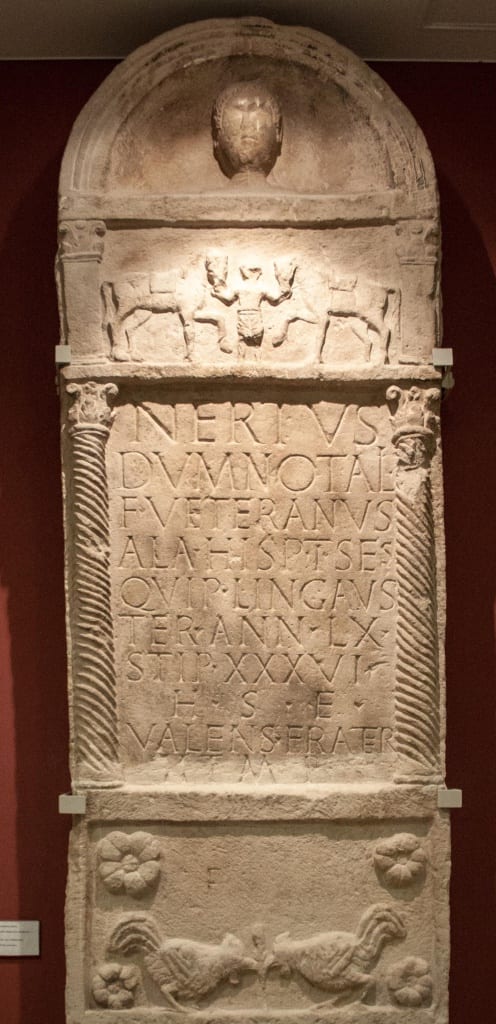
Filomena Giannotti turns her attention to Sidonius’ epitaph of his grandfather: ‘Levigata pagina. Riconsiderando l’epitaffio di Sidonio per il nonno Apollinare (ep. 3,12)’, Invigilata Lucernis 43 (2021).

Filomena Giannotti makes a comparison between Sidonius’ Ep. 4.8 (together with Carm. 29) and Jean Marcel’s rewriting in Sidoine et la dernière fête (1993): ‘Je suis le miroir à la fin de la décadence: Mirror-Games Between Sidonius Apollinaris and Jean Marcel’, ClassicoContemporaneo 7 (2021) 146-56.
Online here
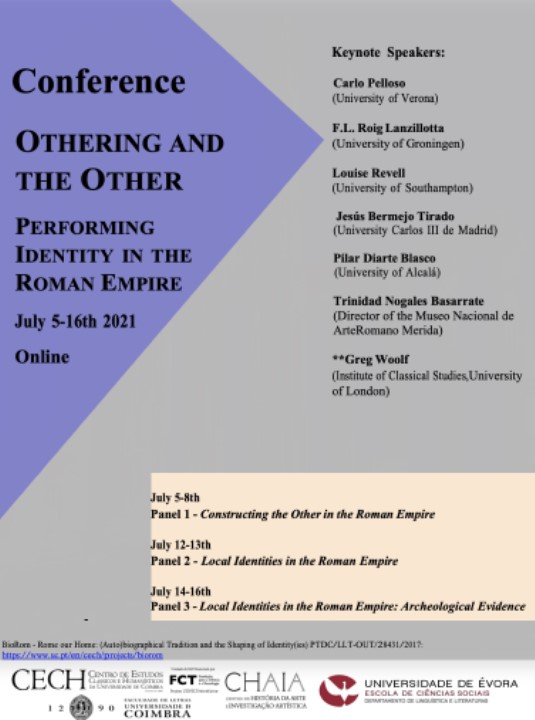
Sidonius is thematized in two upcoming papers at the conference ‘Othering and the Other. Performing Identity in the Roman Empire’ (Universities of Coimbra and Évora) on 13 July, 15:15 – 16:45 (Lisbon-London time):
Pavle Pavlović (Singidunum University of Belgrado), The barbarian ‘Other’ and Sidonius’ ‘language of paradox’
Filomena Giannotti (University of Siena), News from a mundus senescens: Romans, Visigoths and Saxons in a letter by Sidonius Apollinaris (viii 6).
Register here (also links to the conference programme and the booklet of abstracts).
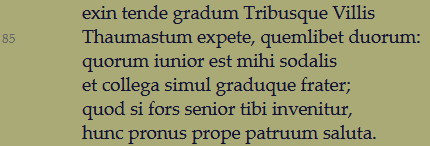
Filomena Giannotti investigates the thorny question whether Thaumastus was Sidonius’ uncle or his cousin in ‘Pronus prope o prope patruum? Nota sul Propempticon ad libellum di Sidonio Apollinare (c. 24,84-89)’, BSL 51 (2021) 169-77.
Abstract. As the penultimate stage of his Propempticon ad libellum Sidonius Apollinaris imagines that his nugae arrive at Tres Villae, where the two Thaumastus, father and son, live (carm. 24,84-89). Together with Apollinaris and Simplicius, Thaumastus has traditionally been identified as Sidonius’ paternal uncle, but Ralph W. Mathisen has recently suggested that they were the paternal cousins and coevals of Sidonius. Even though really deserving, this suggestion is based on some doubtful points, which are analyzed here individually, with reference to some passages of Sidonius’ letters (epist. 3,12,5 lines 1-2; 3,11; 5,4,2; 5,6,1; 5,3,1) and in particular to the verse hunc pronus prope patruum saluta (carm. 24,89). As regards this verse, the new exegetic hypothesis of this paper is that prope is not related to patruum, but to pronus, through an anastrophe, like in some other cases in Sidonius. From a semantic point of view, the awkward interpretation “almost a paternal uncle”, on which Mathisen bases his thesis that Thaumastus was not Sidonius’ patruus but the husband of Sidonius’ aunt, would be replaced by the interpretation “almost prone in a bow”. This would seem to be more in line with the playful personification of the libellus and confirm the traditional theory about the relationship between Sidonius and Thaumastus.

Titubanti Testi, 3rd May, 18:00 h., forwarded message
Gentili colleghe e colleghi,
è con grande piacere che vi invio il link d’accesso al prossimo binomio dei Titubanti Testi che vedrà dialogare intorno all’Epistola 3,12 di Sidonio Apollinare Filomena Giannotti (Siena), esperta sidonista, e Simona Corso (Roma Tre), anglista e comparatista.
L’appuntamento è per lunedì 3 maggio alle 18.
Cordialmente
Marco Formisano
Marco Formisano is inviting you to a scheduled Zoom meeting.
Topic: TITUBANTI TESTI 3. Binomio di lettura (Sidonio Apollinare, ep. 3, 12)
Time: May 3, 2021 05:50 PM Amsterdam, Berlin, Rome, Stockholm, Vienna
Join Zoom Meeting
https://ugent-be.zoom.us/j/93107271974?pwd=ZzhWeXdBaFVBb0M1ejNEWnVYQlJyZz09
Meeting ID: 931 0727 1974
Passcode: F64pf1Y5
One tap mobile
+16699006833,,93107271974#,,,,*77245457# US (San Jose)
+19292056099,,93107271974#,,,,*77245457# US (New York)
Dial by your location
+1 669 900 6833 US (San Jose)
+1 929 205 6099 US (New York)
+1 253 215 8782 US (Tacoma)
+1 301 715 8592 US (Washington DC)
+1 312 626 6799 US (Chicago)
+1 346 248 7799 US (Houston)
Meeting ID: 931 0727 1974
Passcode: 77245457
Find your local number: https://ugent-be.zoom.us/u/abxGpMg1oJ

Filomena Giannotti (Siena) is to read a paper ‘Je suis le miroir à la fin de la décadence: mirror-games between Sidonius Apollinaris and Jean Marcel’ at the International Virtual Mirror Studies Conference (IVMSC) – Beijing, China.
Date: Thursday 4 March, 3.15 pm CET.
Abstract:
Filomena Giannotti
University of Siena
filomenagiannotti@gmail.com
467 A.D. ca.
The Gallic-Roman aristocrat Sidonius Apollinaris, who is already an acclaimed poet and in a few years’ time will become a combative bishop, is traveling from Lyon to his villa in the countryside of Aydat. His friend Evodius, through a messenger, begs him to compose a poem to be engraved on a shell-shaped silver basin. He wants to give it as a present to Queen Ragnahilda, the wife of Euricus, who had become King of the Visigoths a short time before. The poet stops for a while, writes twelve lines as required, one for each frill of the chiseled basin, and gives the letter containing the poem (now Sidonius’ Epistula IV 8) to Evodius’ messenger. According to the last four lines, when the Queen is reflected in the water of the basin, her beauty will illuminate the silver.
March 1993.
Jean Marcel (pen name of Jean Marcel Paquette, a Canadian writer of great imagination and irony: 1941-2019), decides to crown his trilogy of novels about the end of the Roman Empire (Triptyque des temps perdus) with a book about Sidonius Apollinaris and the key role he played in Late Antiquity mounting a military and cultural resistance against the Visigoths (Sidoine ou la Dernière Fête, Montréal, Leméac). The chapter entitled Ce que dit le miroir de Ragnahilde le 10 décembre 467 takes inspiration from Sidonius’ Epistula IV 8, but in Marcel’s version Sidonius is only required to write four lines (the last four of the real epigram) and they are destined to be engraved on the frame of a mirror for “the fairest of them all”: the splendid Ragnahilda, every barbaric heart’s dream. When the Queen receives the mirror, she is not able to understand the Latin verses. And, as she is reputed to be a bit of a witch, the silver surface suddenly begins to come alive, as happens in the magic mirror of Queen Grimhilde in the fairy tale Snow White by brothers Grimm (1812), according to the popular iconography widely spread by the Walt Disney cartoon. Looking through those “waves of time”, Ragnahilda glimpses not only this poet, unknown to her, while interrupting his journey to write those lines, but also several crucial episodes from his special life against the background of Roman decadence. The mirror shows her nothing but the agony of the Western Roman Empire: the murders which, one after the other, sweep away the last ten Roman Emperors, until the fateful date of the “noiseless fall” of that Empire (476). It is the same year in which Sidonius’ region, the Arvernia, is ceded to King Euricus. Right before being imprisoned for his resistance, the poet writes a painful letter, which has been called “the epitaph of the Western Roman Empire” (Epistula VII 6). Even though those tragic days are still far away, the Queen is moved and one tear falls on the mirror. The water of time stops floating in the mirror and reflecting distant events…
467-477 A.D.
For a few more years the unknown author of the verses engraved on the frame will be able to devote himself to his works and close his first letter collection with one of his most memorable sentences, «being well aware that the mind is as fully exposed in a book as the face in the mirror» (Epistula VII 18,2: minime ignarus, quod ita mens pateat in libro velut vultus in speculo).
Zoom links for both days of the conference (4-5 March):
Topic: IVMSC 2021 Day 1
Time: Mar 4, 2021 07:00 PM Beijing, Shanghai
Join Zoom Meeting
https://sdstate.zoom.us/j/96750080799?pwd=SCs1WnMwVzVHYmppUzAyazljZGxhdz09
Meeting ID: 967 5008 0799
Passcode: 450280
One tap mobile
+13462487799,,96750080799# US (Houston)
+16699006833,,96750080799# US (San Jose)
Topic: IVMSC 2021 Day 2
Time: Mar 5, 2021 06:00 PM Beijing, Shanghai
Join Zoom Meeting
https://sdstate.zoom.us/j/96609400895?pwd=YmtPL1J5a3BxMU1acnYyREZEVk04QT09
Meeting ID: 966 0940 0895
Passcode: 551349
One tap mobile
+16699006833,,96609400895# US (San Jose)
+13462487799,,96609400895# US (Houston)
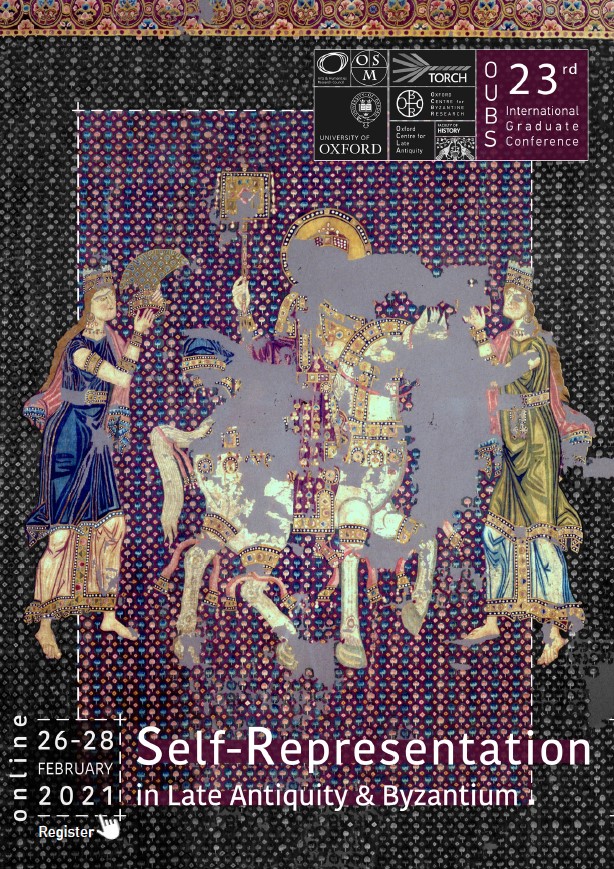
On 27 February, 11.00 GMT, Filomena Giannotti will speak on ‘Self-Representation and Fictional Portraits of a Key Figure in Late Antiquity: Sidonius Apollinaris’ at the 23rd International Graduate Conference of the Oxford University Byzantine Society.
Full programme and registration here
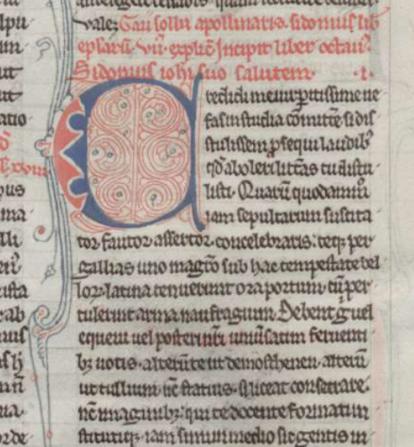
Filomena Giannotti has published ‘Litteras nosse: l’ep. 8, 2 di Sidonio Apollinare e l’importanza della cultura sotto i barbari’ in Pan. Rivista di Filologia Latina.
For details, see Bibliography, tab 2020
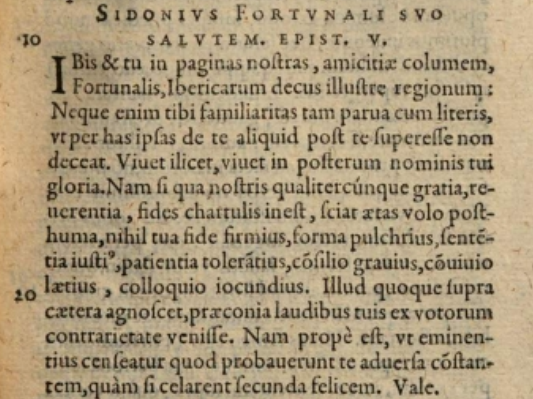
Just out: Filomena Giannotti, ‘Vivet in posterum nominis tui gloria: la lettera di Sidonio a Fortunale (VIII 5)ʼ, Maia (2020) 139-48.